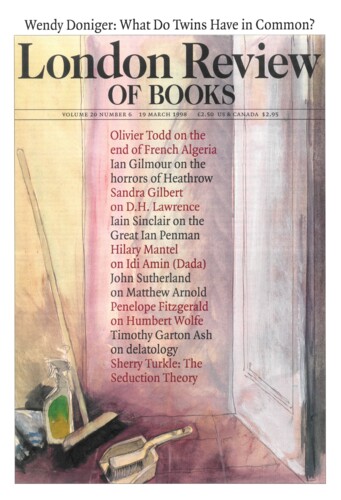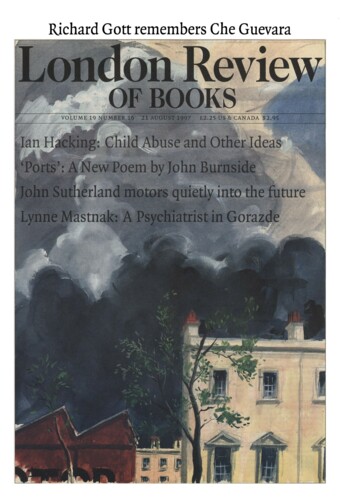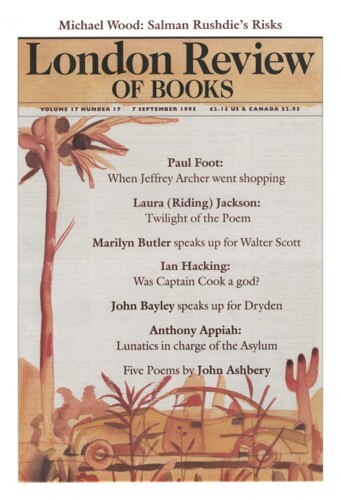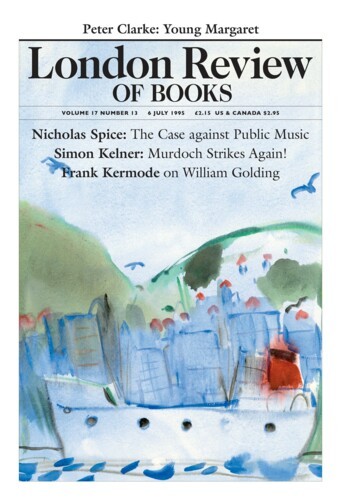Two Poems
Mark Ford, 19 March 1998
Will I ever catch up, or will I be easily Caught first? It was assumed I’d branch out With the heretics, commit a few crimes, then Suffer the decreed punishment: instead, I paused Near the knoll where the vociferous and well- Groomed gather to consider their options. I yearned To wade through buttercups and clover towards The sinister squadrons of an embattled Bourgeoisie....





